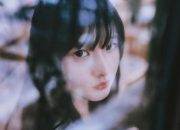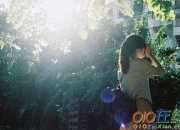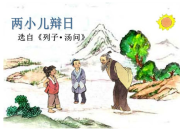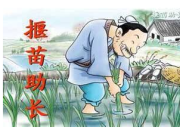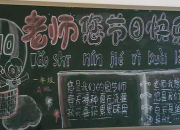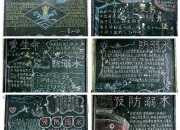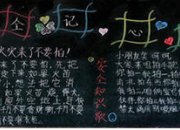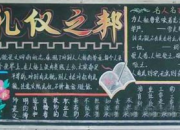优秀的复活节诗歌:Easter Bunny
时间:2021-08-31复活节诗歌:Easter Bunny
In memory of all the bunnies we couldn't save.
I remember Easter Sunday
It was colorful and fun
The new life that I'd begun
In my new cage.
I was just a little thing
When they brought me from the store
And they put me on the floor
In my cage.
They would take me out to play
Love and pet me all the time
Then at day's end I would climb
In my cage.
But as days and weeks went by
I saw less of them it seemed
Of their loving touch I dreamed
In my cage.
In the night outside their house
I felt sad and so neglected
Often scared and unprotected
In my cage.
In the dry or rainy weather
Sometimes hotter sometimes colder
I just sat there growing older
In my cage.
The cat and dog raced by me
Playing with each other only
While I sat there feeling lonely
In my cage.
Upon the fresh green grass
Children skipped and laughed all day
I could only watch them play
From my cage.
They used to take me out
And let me scamper in the sun
I no longer get to run
In my cage.
Once a cute and cuddly bunny
Like a little ball of cotton
Now I'm grown up and forgotten
In my cage.
I don't know what went wrong
At the home I did inhabit
I just grew to be a rabbit
In my cage.
But they've brought me to the pound
I was once loved and enjoyed
Now I wait to be destroyed
In my cage.
Mary
复活节诗歌:Easter Holiday
Easter holiday, is a celebration of the resurrection of Christ!
Jesus Christ, The Son of God, bled and died for us in a sacrifice.
This Spring day's celebrated, generally in the month of April.
All of the bright and pretty colors, of the Easter outfits with frills.
Women and children will wear their Easter bonnets.
In the Spring, you'll hear the various musical sonnets.
April will bring many rain showers.
That'll bring us various beautiful flowers.
One special flower for this day is the Easter Lily.
It's color is white, and yet snowy & milky.
The birds will sing their songs of praise.
As we begin to feel the warmth of the sun's rays.
As we say "Goodbye" to the winter's gloom,
The flowers and trees have already begun to bloom.
All of life's beauty, The Lord created, for us all to share.
Spring breezes begin to flow, sending fragrances through the air.
The winter's thawing will let the rivers, lakes, and streams rise and flow.
The beauty of the Earth will make us all feel aglow!
Farmers and gardeners will start to hoe.
And then they'll begin to sow.
On Sundays, we'll hear the various church bells ring.
Let's be grateful for the LORD, let's rejoice and sing.
If it wasn't for the Lord, we wouldn't have anything!
Easter: The Day of Resurrection
Well, There is a Christian saying. It says, "Prophets died, saints died, great men died - none of them ever returned to life. When Christ died some people remembered that he had foretold his resurrection……"
Well, There is a Christian saying. It says, "Prophets died, saints died, great men died - none of them ever returned to life. When Christ died some people remembered that he had foretold his resurrection……"
The reference of Bible
Behind the festive joys, feast, fun and family enjoyment, Easter reminds all of a significant event. The event that Jesus Christ was resurrected, after having suffered and died. It reminds you that Christ, who was crucified on, what is now called, the Good Friday, showed himself up on the Easter. So, it is a time to celebrate. To celebrate - that Lord, who appeared on Earth for the good of mankind, is always with us.
That Jesus would resurrect was foretold. The saying came as one of his prophecies.
And, with memories sharpened by hatred, his enemies were the first to remember his prophecy. Hardly had he been buried when they approached the Roman Governor Pontius Pilate with a request to guard the tomb. Pilate gave them soldiers and instructed them to secure the tomb. They went, sealed the stone that closed the entrance, and set the guards to keep watch day and night.
During the night of Friday, the day of his Crucifixion, through to Saturday, nothing had really happened. So did go the the whole of Saturday, the weekly rest day in Jerusalem then.
The things turned different on the early morning of the Sunday, the third day since Jesus was crucified. There was a great uproar and the guards of the tomb were all struck by lightning. for an angel of the Lord descended from heaven and came and rolled back the stone, and sat upon it. His face shining like lightning and his garments white as snow. At this sight, the soldiers trembled with fear and remained as dead men. When they came to their senses there was no point in watching over an empty tomb any longer.
They went to report the chief priest about the incident. In reply they were asked to distort the truth. And spread a story that the body of Jesus was stolen by his own disciples when the guards were asleep during the night.
Meanwhile, early on the following morning, that was Sunday morning, some holy women started for the tomb. They were surprised to see that the stone had been moved aside. They entered the tomb. And found it empty. As they wondered what all these meant, two angels appeared. The angels told them that Jesus had risen again, as he had already told.
Soon Peter, the chief of Jesus' twelve apostles got there along with John, his junior. They found only the linen and the piece of cloth used to wrap his body lied in the empty tomb. Puzzled, they left.
But Jesus was yet to appear in front of them. Instead, Jesus went farther. He turned up to join two of his disciples who were journeying from Jerusalem to a village called Emmaus. However, Jesus did not make himself known to them. Jesus to them came to be known as a stranger who had real mastery over the holy Scriptures. Impressed they invited Jesus to stay with them and share their meal. Jesus agreed. But when at the table they recognized Jesus, he disappeared.
In no time the two disciples headed for Jerusalem. When they met the apostles and told them about everything happened, Jesus made his appearance. And Jesus convinced them all that he was alive and asked them if anything was there to eat. Then he ate in their presence as a living man does. With this everybody there became overwhelmed with joy that their master had returned to life. And life again had become meaningful to the apostles.
Jesus had eaten with them. Talked to them in a familiar manner. And finally he reminded them that he had come from heaven, sent by his Father to perform a task. Now, the task had been done by offering his life for the sins of mankind, it is time for the apostles to follow his suit. And Jesus gave the apostles the Holy Spirit: the power over sin. So one whose sins are forgiven by the apostles, would be forgiven by the heaven. After this Jesus left, as suddenly as he came in.
Jesus returned to the same place on the Sunday next, to make believe the unbelievers. And Jesus showed himself now and then to teach his apostles the lessons and to teach them to live without him. Jesus did this for a period of forty days.
On the fortieth day of reappearance, when he felt he had given the disciples all that he had to, he went back to the heaven. This same Jesus will come back just the same way He has left.
He had left his disciples to carry on his work and to reach his message of love and peace to all.
The Easter Bunny: Symbol of Easter
The Easter Bunny is one of the best known Easter symbols. Learn its history, and how people around the world revere rabbits and hares.
The Easter Bunny is one of the best known Easter symbols. Learn its history, and how people around the world revere rabbits and hares.
The Easter Bunny: Beloved Easter Symbol
Of all the symbols of Easter, none is more beloved than the Easter Bunny. And, of all the symbols of this season, none has a more varied, unique and universal background than this floppy-eared chocolate confection deliveryman. With his place—and yes, for some reason, the Easter Bunny is always referred to as "he"—in the traditions of many cultures, Rabbit can most certainly answer the question, "What's up, doc?" (after all, what would Elmer be without Bugs?).
The Advent of The Easter Bunny
The first documented use of the bunny as a symbol of Easter appears in Germany in the 1500s; although the actual matching of the holiday and the hare was probably a much earlier folk tradition. Not surprisingly, it was also the Germans who made the first edible Easter Bunnies in the 1800s.
The Pennsylvania Dutch brought the beneficent Easter Bunny to the United States in the 1700s. Children eagerly awaited the arrival of Oschter Haws and his gifts with a joy second only to that brought about by the winter visit of Kris Kringle.
Rabbits Revered Around the World
Many Asian and Eurasian cultures revere the rabbit (or hare) as a sacred messenger of the Divine; to the Chinese, he is a creature in the moon, pounding rice (the staff of life) in a mortar.
To the followers of Buddhism the rabbit was placed in the moon as a result of his self-sacrifice in offering himself as food. In a second version, the rabbit cooks himself in Indra's fire since he had no food to offer her and the deity placed him in the moon as a reward. To the Egyptians, the hare (as opposed to the rabbit) was known as un, which meant "to open," or "the opener." This was because the hare, unlike his cotton-tailed cousin, is born with his eyes open. "Un" also meant "period" as it was a symbol for both lunar and human cycles.
These traditions undoubtedly spread to the indigenous tribes of Western Europe much as the Indo-European language base developed through encounters between these two groups. This also blended well with Celtic tradition, which viewed the hare as a symbol of fertility and new life, and the Germanic tradition that the hare brought new life each spring.
Even in North America, the Rabbit/Hare is revered. To the Native American peoples, he was the Trickster/Transformer who either plays the Fool or, in other instances, has brought about a benefit for humankind (i.e., the legend of Rabbit bringing fire to the people). The ancient Mayan culture gives Rabbit credit for inventing Mayan writing.
Just as the ancient sacred places and names were blended into the holiday celebration we know as Easter, so too was the Rabbit/Hare molded from an ancient bringer of new life and renewal to the Easter Bunny, a symbol of a holiday celebrating a resurrection. In truth, the Rabbit stays the same: a messenger of a season when all things are possible and all things can again be new.
Easter Sunday, Easter Baskets
Easter is not just bunnies and eggs. Learn about Easter Sunday, Easter bonnets, Easter baskets and why people pick pussy willows in Russia and England.
Easter is not just bunnies and eggs. Learn about Easter Sunday, Easter bonnets, Easter baskets and why people pick pussy willows in Russia and England.
